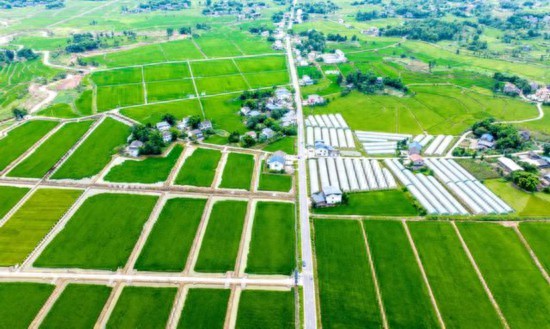
8月1日,广安区花桥镇竹林村粮油现代农业产业园内,水稻如地毯般铺展在乡村大地,构成一幅美不胜收的田园风光画。
近年来,广安市广安区全力推进高标准农田建设,积极完善沟、渠、路等基础设施,努力创建各级农业产业园区,促进农村经济社会发展和农民增收致富。(广安区融媒 张国盛 摄)

“希望的田野” (xīwàng de tiányě) is a powerful and evocative phrase in Chinese, often used metaphorically. Here's a breakdown of its meaning and significance:
1. "Literal Meaning:" "Fields/lands of hope."
2. "Figurative Meaning:" It primarily refers to "farmland" or "the countryside". However, it's used symbolically to represent:
"Prosperity and Abundance:" Fields full of crops symbolize agricultural success, food security, and economic well-being for farmers and rural communities.
"Prospects and Future:" The land represents potential and the foundation for a better future, both for individuals and the nation.
"Peace and Tranquility:" Often associated with the calm beauty and vital importance of rural life.
"Foundation of the Nation:" In China, agriculture has historically been the backbone of the economy, and the land is seen as the very foundation of national stability and prosperity.
"Significance and Usage:"
"Poetry and Literature:" The phrase is famously used in the title of a well-known poem ("希望的田野" - Fields of Hope) by the Chinese poet Jiang Zemin (江泽民), who was also the President of China at the time. The poem reflects on the changes and progress in rural life.
"Political and Social Context:" It's often used in official discourse, media reports,

8月1日,广安区花桥镇竹林村粮油现代农业产业园内,水稻如地毯般铺展在乡村大地,构成一幅美不胜收的田园风光画。
近年来,广安市广安区全力推进高标准农田建设,积极完善沟、渠、路等基础设施,努力创建各级农业产业园区,促进农村经济社会发展和农民增收致富。(广安区融媒 张国盛 摄)